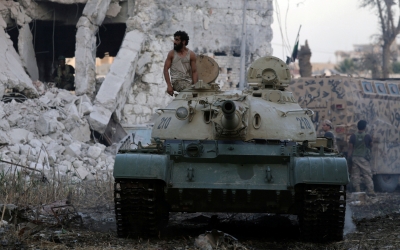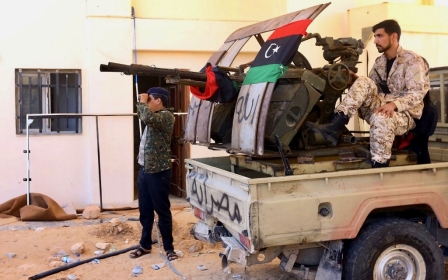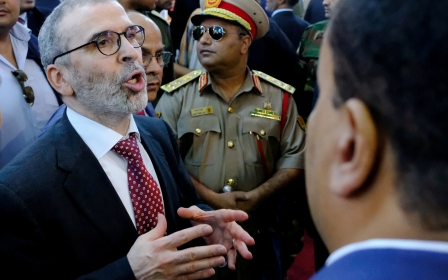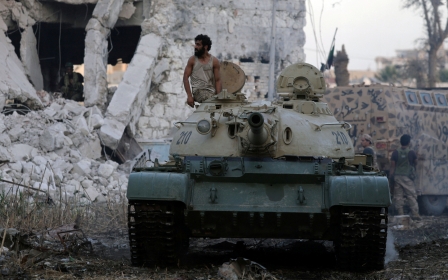Tripoli's water supply reconnected, allaying fears of humanitarian crisis
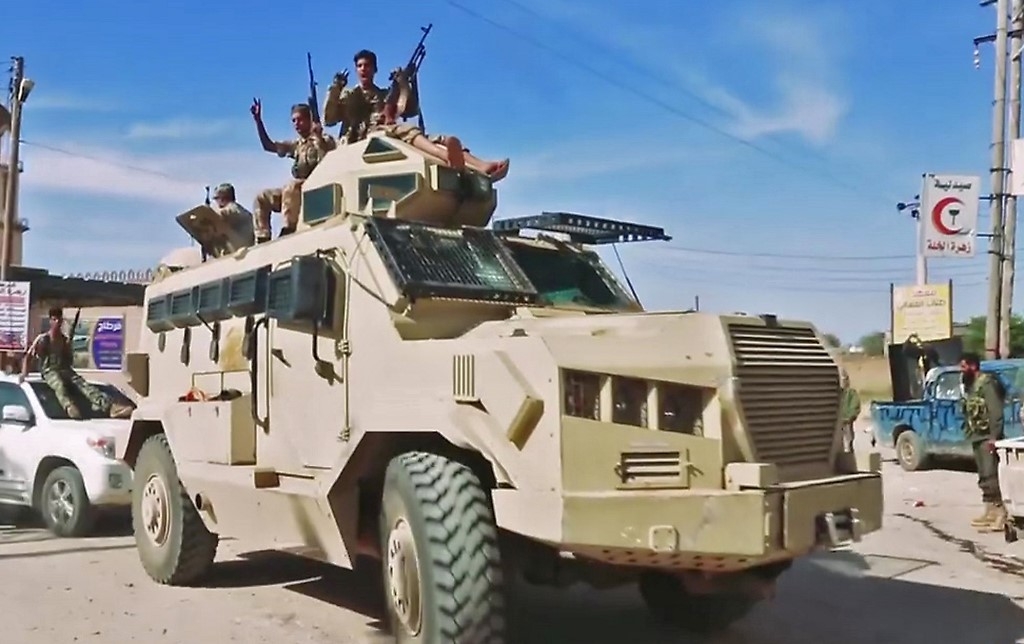
Water supplies to the Libyan capital Tripoli have been reconnected, officials said on Tuesday, two days after gunmen cut the besieged city off in a move that sparked fears of a humanitarian crisis.
The United Nations said the water blockage was a possible war crime as Libya’s internationally recognised government accused forces loyal to Khalifa Haftar, which have been trying to capture Tripoli, of being behind the blockage.
"The crisis of halting water supplies has ended and flows have started," the Great Man-Made River company, which supplies Tripoli with ground water from the Sahara, said in a statement.
One of the Great Man-Made River Project's stations was raided by an armed group on Saturday, the company said.
New MEE newsletter: Jerusalem Dispatch
Sign up to get the latest insights and analysis on Israel-Palestine, alongside Turkey Unpacked and other MEE newsletters
The gunmen forced employees to turn off the pipes at the installation 400km south of Tripoli.
As a result of the attack, water was also cut to Gharyan and some other western mountain cities.
The eastern forces of Haftar’s self-styled Libyan National Army (LNA), which has received support from countries including the United Arab Emirates, Saudi Arabia and Egypt, launched an assault on Tripoli in early April.
The troops are now bogged down in the southern suburbs of the city by fighters loyal to the UN-backed government of Prime Minister Fayez al-Serraj.
In past attacks on the pipeline, which was one of former leader Muammar Gaddafi’s few development projects, it has taken up to two days for households to notice water shortages in the coastal city of 2.5 million people.
The Tripoli government blamed a group that also cut the water supplies in 2017, saying its commander, Khalifa Ehnaish, belonged to Haftar’s forces.
The LNA denied the accusation while the Reuters news agency said Ehnaish could not be reached.
“Considering this was a closure of the valves in an LNA-controlled area, the complicity of Ehnaish with the LNA in orchestrating this cannot be discounted,” said Emad Badi, a non-resident scholar with the Middle East Institute in Washington.
Fighting in the battle for Tripoli has killed at least 510 people, forced 75,000 out of their homes, trapped thousands of migrants in detention centres, and flattened some southern suburbs.
It has also forced the closure of schools, split families on different sides of the front line, and brought power-cuts.
The conflict is one of the most serious flare-ups in years of chaos since the 2011 toppling of Gaddafi, and has sharpened Gulf divisions over Libya.
Middle East Eye delivers independent and unrivalled coverage and analysis of the Middle East, North Africa and beyond. To learn more about republishing this content and the associated fees, please fill out this form. More about MEE can be found here.


